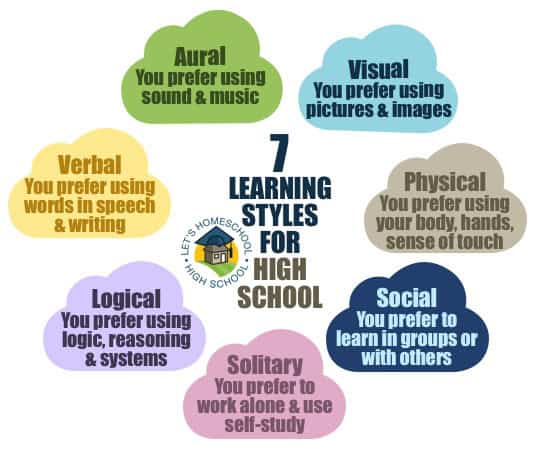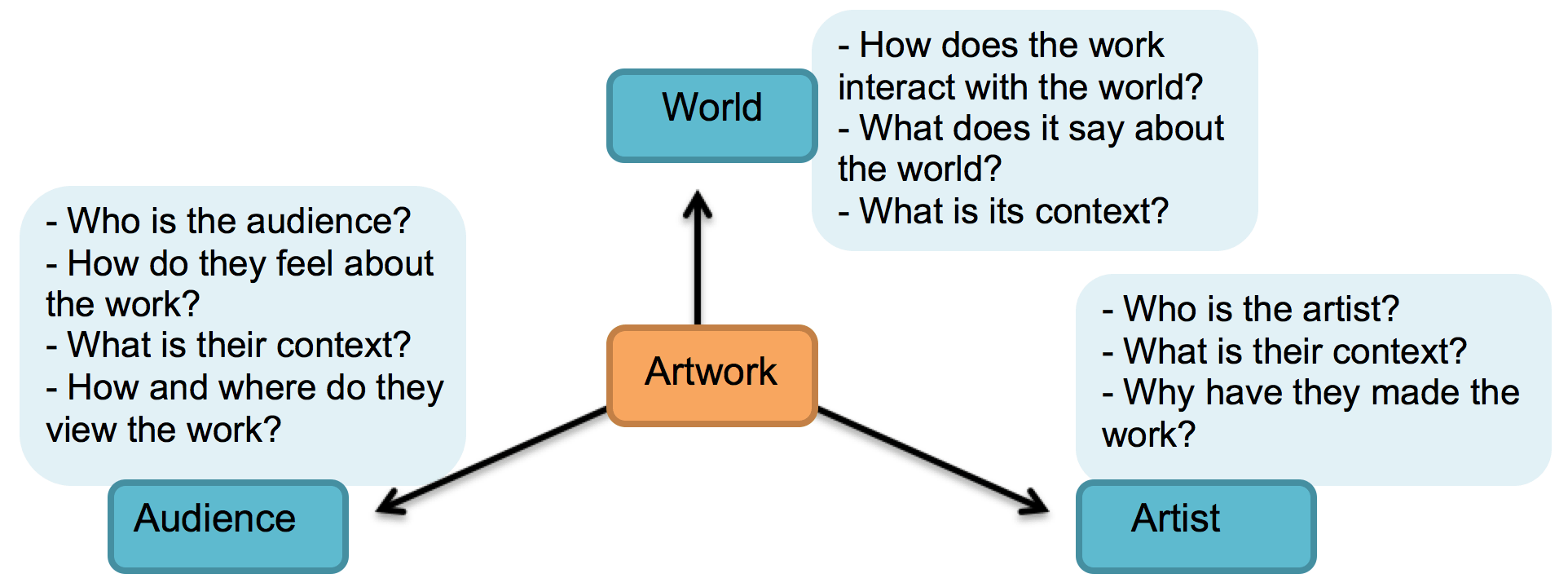You’ve probably heard people talk about different study methods to help them memorise content – aural, visual and verbal techniques!
But what a lot of people don’t know is that there are actually 7 distinct learning styles!
Research has shown that all of the styles can be equally useful and effective in their own ways, but they work best when used together.
By figuring out which study method you already use and which ones you can start implementing, you can effectively maximise your study potential and work effectively from the get-go and achieve success in Year 12!
So, what are you waiting for? Let’s dive into the different exam study methods!
Study Method #1: Aural
Study Method #2: Visual
Study Method #3: Verbal
Study Method #4: Physical
Study Method #5: Logical
Study Method #6: Social
Study Method #7: Solitary
The 7 Exam Study Methods
Study Method #1: Aural
Incorporate sound, rhyme or music into your study; make up little jingles or rhymes to help you remember important ideas or content, or using existing songs, such as Cold Chisel’s “Khe Sanh” (about soldier experiences post-Vietnam War).
Record yourself reading notes or key information so that you can play it back to yourself as often as you want.
Protip: put them on your phone so you can listen to them on the go!
Create a study playlist you can play to get you into the swing of things – make sure it’s not too loud or lyrical so it won’t be distracting. Instrumental film soundtracks and classical music are especially useful, as is the study tag on 8tracks.
Give it a try: go to Spotify and put together your own study playlist! Try to focus on instrumental music.
Study Method #2: Visual
Graphs, flowcharts, mind maps and drawings are your best friend! By organising information into visual categories and diagrams it’s much easier to remember.
Make your study visually interesting – use colour coded highlighters, post-it notes and pens to clearly separate different themes, concepts or important information. Here’s a colour coding tutorial!
Design small symbols or icons to help categorise information. For example; stars for key syllabus points, squares for recurring themes, diamonds for connected ideas and smiley faces for important quotes.
Here’s an example of a Visual arts conceptual framework flowchart!
Give it a try: grab your last page of notes or classwork and quickly make a mind map of the information!
Study Method #3: Verbal
Repetition and condensing is key with study notes! By frequently reviewing and rewriting your notes in a more succinct way you can maximise your memory!
Explain a topic or syllabus point to someone who knows nothing about it to test your own knowledge. Give your notes to a friend and explain them, then have your friend get let you know what parts you need to revise.
Make it fun! By giving study a sense of humour you can make it much more bearable – for example, recounting historical events in layman’s terms or with puns makes them easier to remember. Acronyms are great as well!
Example (verbal pun)
“At the start of World War I, Germany’s Schlieffen Plan was to invade France through Belgium and occupy Paris within 6 weeks, from where they would then take Britain. This all relied on the assumption that Russia wouldn’t mobilise for at least 2 weeks, however Russia’s military was mobilised in only 72 hours. I guess you could say they were rushin’!”
Give it a try: using the last set of notes you made, try to turn the first letters of the key points into an acronym. Share your acronym in the comments section below!
Study Method #4: Physical
Use physical objects as much as possible – this can mean creating paper cut-outs or dioramas of certain scenes or events or even acting out ideas.
Writing and drawing diagrams can also be physical activities, so repetitive note taking and writing practice responses can work well.
Studying while working out or moving around can be effective as well! Set up your notes on a treadmill or stationary bike and review them while exercising, or record yourself reading notes and listen to the recording while jogging.
Give it a try: quickly record the most recent notes you made as a voice memo on your phone and listen to them while you jog around the block.
Study Method #5: Logical
Figure out the ‘why’ of the major ideas you’re studying! By understanding the reasons behind historical events, economic trends or literary techniques you’ll be better equipped to remember information about them.
Write bullet lists of only key words or information from your notes and sort them by their level of importance or relevance to better prioritise your notes.
Develop systems to follow to keep you motivated and focussed – a pattern of condensing notes is one of the most effective systems.
Example – English notes
Write draft essay.
Draw out key themes.
Connect a technique, example quote and effect to each theme.
Bullet list each theme with its technique/quote/effect.
Rewrite essay or an essay plan.
Give it a try: using the last set of notes you made, quickly bullet the key ideas from the information.
Study Method #6: Social
Plan study groups of 3-6 people or smaller study dates with just you and a friend so that you have other people to interact with and bounce ideas off while studying, as well as keeping it fun.
Study games using flash cards, rapid-fire questions and word associations make study more interactive. Game show formats (like ‘Millionaire Hotseat’) can easily be applied to group study exercises.
Keep people focused with an incentive. Everyone can chip in to buy a bag of lollies or movie vouchers for whoever can answer the most questions correctly or write the best notes.
Study Method #7: Solitary
Studying alone can be very effective when managed correctly. Stay on task by creating clear goals and ‘To Do’ lists with deadlines that you can meet, for example; writing a practise essay by Friday, or finishing a speech draft within two days.
Suit study to your personal interests and hobbies. If you prefer the outdoors take your notes to the local park and study there, or get up a few hours earlier to study if you’re a morning person.
Give yourself breaks and rewards to avoid burning out! This can be anything from regular five minute breaks every half hour to watching one episode of your favourite TV show for every essay draft you write.
And that wraps up the 7 learning styles to help you study for your exam!
At the end of the day all these study styles are effective, and there’s no proof that any one works better than the other.
What does work best, however, is mixing things up and making sure you’re using all or most of these styles to your own benefit!
By mixing up study styles you’re able to keep study fun and varied, as well as learning content in lots of different ways, making it way easier to recall later.
Looking for some extra help with your HSC studies?
We pride ourselves on our inspirational HSC coaches and mentors!
We offer tutoring and mentoring for Years K-12 in a variety of subjects, with personalised lessons conducted one-on-one in your home or at our state of the art campus in Hornsby!
To find out more and get started with an inspirational tutor and mentor get in touch today!
Give us a ring on 1300 267 888, email us at [email protected] or check us out on Facebook!
Maddison Leach completed her HSC in 2014, achieving an ATAR of 98.00 and Band 6 in all her subjects. She enjoys helping students through the academic and other aspects of school life, even though it sometimes makes her feel old. Maddison has had a passion for writing since her early teens, having had several short stories published before joining the world of blogging. She’s currently studying a Bachelor of Design at the University of Technology Sydney and spends most of her time trying not to get caught sketching people on trains.





